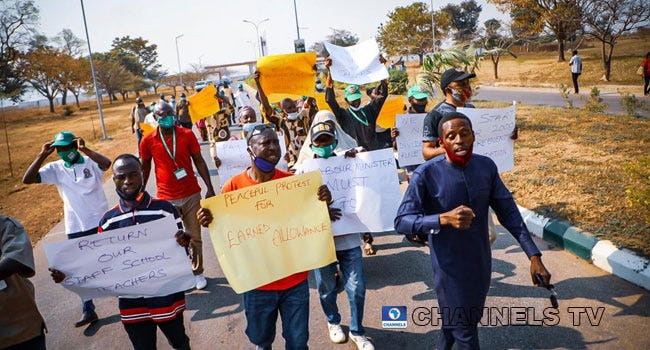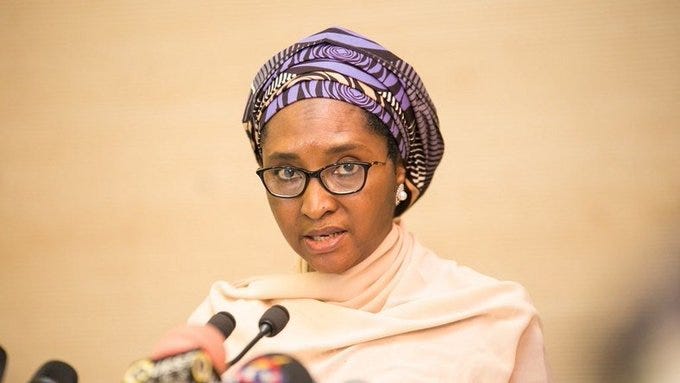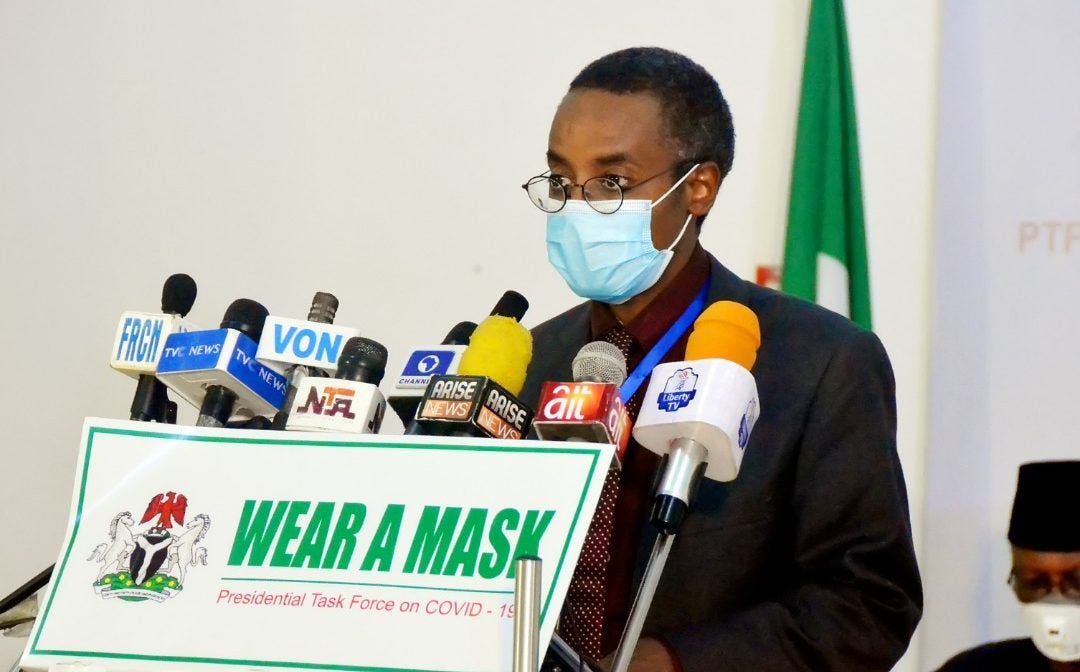Wednesday briefing: ASUU and the battle for the soul of Nigerian universities
What you need to know.
Good morning.
On the table today is why university workers are protesting, the charge to reduce inflation in Nigeria and clarification on when schools will resume.
This newsletter delivers the most important news from a Nigerian perspective to your inbox before 7 am every weekday. You can unsubscribe at the bottom if you don’t want to receive it anymore, but I hope you don’t. It’s relevant, concise and straight-to-the-point. Helps you stay ahead.

University workers hit the streets
It’s less than a month since the Academic Staff Union of Universities (ASUU) ended its ten-month-old strike and other university workers are already primed for industrial action.
On Tuesday, members of the Non-Academic Staff Union (NASU) and Senior Staff Association of Nigerian Universities (SSANU) commenced a three-day protest nationwide. If, after the protest, the government does not acquiesce to their demands, the workers have warned they also have the power to shut down universities.
Their demands include a review of the payroll system IPPIS and the sharing formula for the N40bn earned allowances promised by the federal government to universities. NASU and SSANU say the federal government arbitrarily decided to give ASUU 75 per cent of the allowances while other unions are to share the remaining 25 per cent. They want more.
It took ASUU months of strike actions to achieve a semblance of cooperation from the federal government. It is unlikely that a three-day protest will suffice. The discontents will persist.
Money will always be a problem for Nigerian universities until they are properly and efficiently run. The culture of ‘waiting’ for government handouts is not a sustainable path. If university education was so essential, why can’t it create its own funding?
The government wants to reduce inflation
One of the constant trends in 2020 was the increase in food prices and the general cost of living as inflation rose to a near three-year high of 14.89 per cent. In 2016, the Central Bank was targeting between six and nine per cent. But on Tuesday, the Minister of Finance, Zainab Ahmed, said the administration will be happy if it can bat the rate down to 11.95 per cent by the end of 2021.
One of the key strategies the government is banking on is the reduction in food prices and the steep cost of doing business.
Monetary policies such as reducing the money supply in the economy by decreasing bond prices and increasing interest rates are also on the table.
Meanwhile, the government has budgeted N765 billion for its social investment programmes, which includes doling out cash to poor, unemployed, and disenfranchised Nigerians.
School resumption date still intact
The Minister of Education, Adamu Adamu, on Monday, said that the date for the resumption of schools may be reviewed in light of the country’s Covid situation. Some interpreted it to mean the resumption date had changed.
On Tuesday, National Coordinator of the Presidential Task Force (PTD) on Covid, Sani Aliyu, said the date remains January 18. “As regards schools, I just want to make a clarification,” he said. “What the minister said yesterday was that they were going to review, he didn’t say that they were going to change the date. He said they will review the situation and let the nation know.”
Meanwhile, the country recorded 1,270 new cases and 12 deaths, according to the Nigeria Centre for Disease Control.
Extra: Some Nigerian scientists have investigated the effectiveness and roles that the Ivermectin drug can play in the treatment of coronavirus, according to Vice President Yemi Osinbajo.
Related: A Chinese vaccine has been found to be less effective than previous data showed, according to Brazillian researchers.
Also related: Finance Minister, Ms. Ahmed, has said there is no provision in the 2021 Budget to fund the acquisition of Covid vaccines.
What else is happening?
Court-martial: A soldier, Azunna Maduabuchi, who shot his superior after denying him a pass to go see his family has been sentenced to death.
Illegal detention: A 29-year-old pharmacist has reportedly been detained for nine months after he tweeted that he would “pay a Russian sniper to eliminate Buhari and Kyari”, apparently referring to President Muhammadu Buhari and his then Chief of Staff, Abba Kyari, who later died of complications attributable to COVID-19 later in the year.
Buhari: Six months after they were confirmed by the Senate, the President eventually approved the posting of ambassador-designates to Nigerian missions abroad.
Police: The Inspector-General, Mohammed Adamu, has ordered the redeployment of 21 Commissioners of Police to new commands and formations across the country.
Uganda: Authorities, also, have ordered a shut down of social media as the country prepares to vote on Thursday.

Senegal: The West African nation’s ‘best student’ has gone missing in France. Ms. Sow was last reported at a student residence in the 13th arrondissement of Paris where she had a small studio apartment, according to the Senegalese Consulate.
Impeachment: Some Republicans are beginning to back off from supporting Donald Trump as his presidency nears an inglorious end.
And that’s it for today’s briefing. See you tomorrow.





